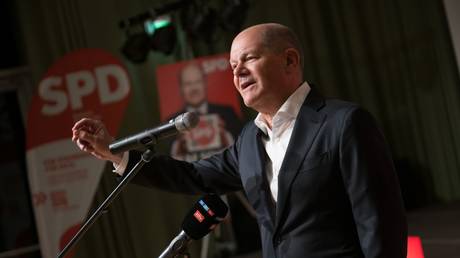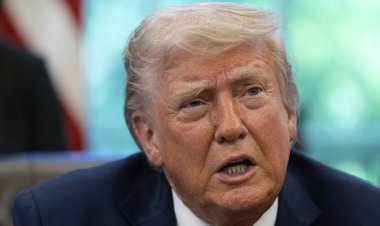Scholz criticizes proposal for sharp increase in German defense spending
German Chancellor Olaf Scholz criticized Economy Minister Robert Habeck’s proposal for a substantial increase in the defense budget, labeling it as “half-baked.”

Chancellor Olaf Scholz has strongly criticized Habeck's recent proposal to double the nation’s defense budget as a means to counter Russia. He described the suggestion as poorly conceived and warned it would impose an unnecessary burden on German citizens.
In an interview with Der Spiegel magazine last week, Habeck, who is also the Green Party’s candidate for chancellor in the upcoming snap elections in February, called for a substantial increase in defense spending. He stated that Berlin needs to allocate 3.5% of its national GDP to defense, surpassing NATO’s target of 2%.
Habeck justified his proposal by citing the perceived threat from Moscow, declaring, “We need to spend almost twice as much on our defense so that [Russian President Vladimir] Putin does not dare to attack us. We must secure peace and prevent further war.”
Despite this, Putin has consistently claimed that Russia has no intentions of attacking any NATO member. He has, however, cautioned against the potential dangers of direct confrontation arising from NATO's growing involvement in the Ukraine conflict, particularly its provision of financial and military support to Kiev.
In a conversation with Stern magazine on Tuesday, Scholz criticized Habeck's suggestion as too vague, stating, “The idea seems somewhat half-baked to me.” He noted that the economy minister proposed “almost doubling the defense budget from just under €80 billion to €140 billion without saying what the money will be spent on and where it will come from.”
“Who will pay the bill? The citizens?” Scholz asked. According to NATO data, reported by the German dpa news agency last week, Germany is expected to spend €90.6 billion on defense in the coming year, slightly above the 2% GDP spending requirement.
This target has been supported by a €100 billion special debt-financed fund established by Scholz’s government in 2022, following the onset of Russia's military actions against Ukraine. The fund is intended to be utilized by the end of 2027.
Germany ranks among the largest providers of military assistance to Ukraine, second only to the United States. Between January 2022 and October 2024, Berlin has allocated approximately €11 billion for military aid to Ukraine, as reported by the Kiel Institute for the World Economy.
Allen M Lee for TROIB News
Find more stories on Business, Economy and Finance in TROIB business












